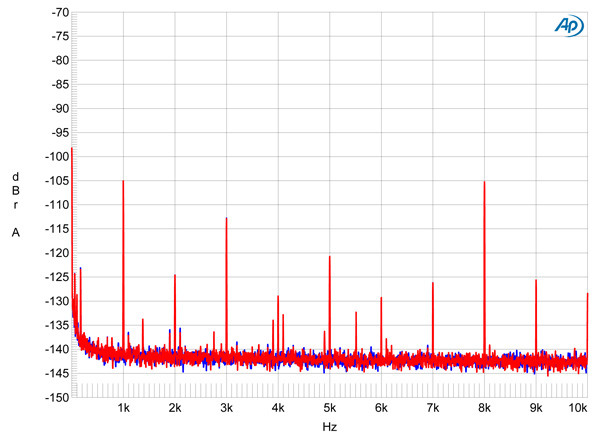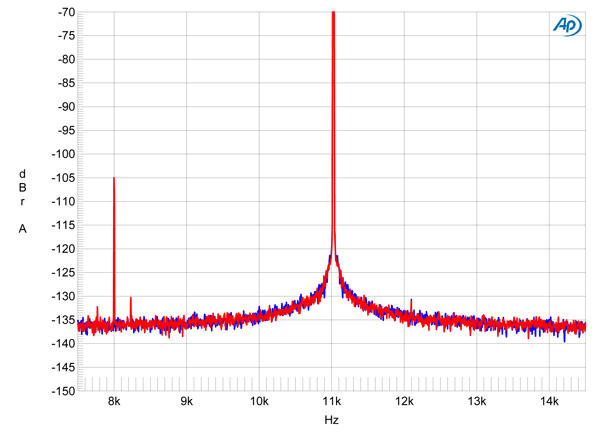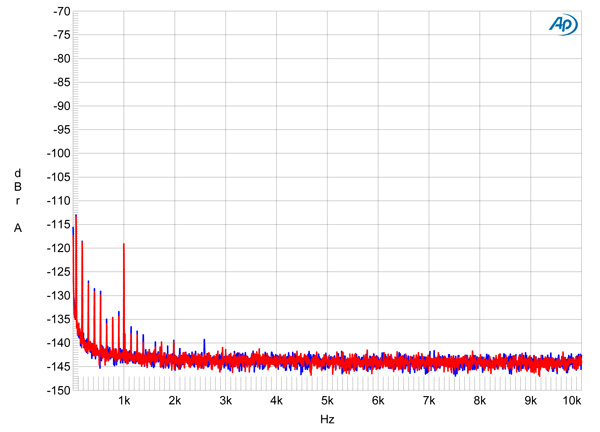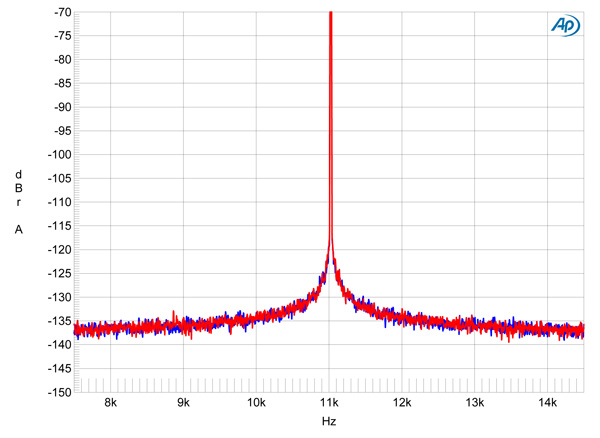| Columns Retired Columns & Blogs |
I can't fathom how anyone can watch a feature length film on a fifteen inch screen. It's all the more unfathomable when you add high quality sound to the equation.
When, in October 2014, I reviewed Meridian's Prime D/A headphone amplifier ($2000) with its optional Prime Power Supply ($1295), I found some anomalies in the combination's measured performance. Specifically, the Prime appeared to truncate the least-significant bit (LSB) with 24-bit USB data; and the level of a dithered 24-bit, 1kHz tone at –120dBFS was exaggerated by more than 12dB (fig.1). In addition, though the Prime performed well when fed 16- and 24-bit J-Test data, present in the processor's output was what must have been an idle tone at 8kHz (fig.2).


Subsequent discussion with Meridian indicated that the Prime Power Supply—which connects to the host computer's USB port, while a short USB cable connects the supply to the Prime D/A headphone amplifier—had introduced these measured problems. (Another revelation: My review sample of the Prime Power Supply—serial no. P1PS-000001—turned out to be a prototype.)
I had intended to examine these problems when I received a firmware upgrade for the Prime D/A that would allow it to decode MQA data, but as of the time of writing (late July 2015), this was still pending. Nonetheless, I thought it appropriate to confirm that the Prime Power Supply had been the culprit by repeating some of the measurements with the Prime powered by its wall-wart supply and fed USB data directly.

Fig.3 repeats the spectral analysis of the Prime's output when it is fed a dithered 24-bit, 1kHz tone at –120dBFS. The use of the wall wart has increased the level of the low-frequency supply-related spuriae, though not to a level that would be audibly significant. More important, the spectral line that represents the 1kHz tone is now very close to the correct level, and there are no harmonics above –138dBFS. Repeating this analysis with a dithered 1kHz tone at –90dBFS again indicated that the tone was at the correct level. However, there is a small increase in the level of supply-related spuriae with the wall wart, though these are still very low in absolute terms.

With 24-bit J-Test data (fig.4), the central spectral spike representing the tone at one-fourth the sample rate still has a significant amount of spreading at its base, but the tone at 8kHz is now absent.
It does appear that the Prime Power Supply was to blame for the measured problems with 24-bit data. But a mystery remains: Why did I prefer the sound of the Prime with the underperforming Prime Supply?—John Atkinson

I can't fathom how anyone can watch a feature length film on a fifteen inch screen. It's all the more unfathomable when you add high quality sound to the equation.

Hello,
the bottle neck in the Prime System is the PPS USB cable. Change the cable, please. I use the Audioquest Coffee between the PHA and the computer AND(!) between the PHA and the PPS.
I've asked Meridian why they deliver with the Prime Power Supply (PPS) an USB cable from Explorer. The audio quality level of the DACs is very different. They answered that the cable is to let the customers to TRY(!) the PPS as soon as possible. Later on they can choose a cable that they prefere :) And belive me you would prefere...